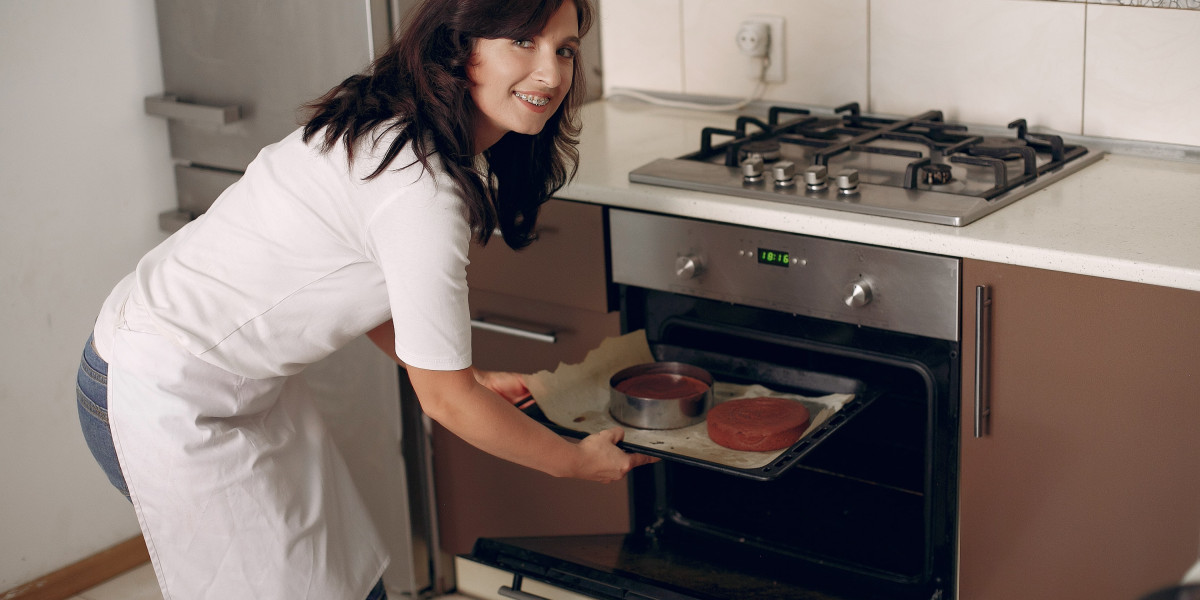The Integrated Cooker: A Comprehensive Guide to Modern Cooking Solutions
The development of kitchen appliances has revolutionized cooking and cooking strategies, making meal preparation more effective and enjoyable. Amongst these innovations, the integrated cooker stands apart as a versatile and space-saving addition to modern kitchens. This post explores the various aspects of integrated cookers, consisting of types, advantages, functions, and a comparison with standard cooking methods.
What is an Integrated Cooker?
An integrated cooker is a compact cooking device that combines several cooking functions into one system. Typically built into kitchen cabinetry, these cookers are created to conserve area while improving kitchen aesthetics. They generally integrate a range of performances, such as baking, barbecuing, steaming, and even pressure cooking.

Key Features of Integrated Cookers
- Multi-Functionality: Integrated cookers can perform different cooking tasks, getting rid of the requirement for numerous appliances.
- Space-Saving Design: These cookers fit perfectly into kitchen systems, making them perfect for modern homes with minimal area.
- Advanced Technology: Many integrated cookers come geared up with smart technology, such as programmable settings, touch-screen controls, and connection choices.
- Energy Efficiency: Built with modern-day products and style, they often consume less energy compared to conventional cooking techniques.
Types of Integrated Cookers
The marketplace provides different kinds of integrated cookers, each with its special set of functions and functionalities. Here are the most typical types:
| Type | Description | Example Use |
|---|---|---|
| Built-in Ovens | Ovens that are fitted into wall units or kitchen cabinetry | Baking bread, roasting meats |
| Induction Hobs | Cooktops that use electro-magnetic energy to heat pots and pans | Quickly boiling water, sautéing |
| Steam Ovens | Appliances that cook food using steam for much healthier outcomes | Steaming veggies, fish |
| Microwave Ovens | Integrated microwaves for quick heating and cooking | Reheating leftovers, making popcorn |
| Mix Ovens | A mix of traditional and steam cooking technologies | Baking while guaranteeing moisture retention |
Benefits of Using Integrated Cookers
Integrated cookers provide a host of advantages over traditional cooking Solutions tools. Below are some of the key benefits:
- Space Efficiency: Ideal for compact kitchen areas, integrated cookers make use of vertical spaces effectively.
- Structured Cooking Process: With numerous functions available, users can shift from one cooking technique to another with very little effort.
- Improved Aesthetics: Many integrated cookers been available in smooth styles that blend well with contemporary kitchen decoration.
- Improved Cooking Control: Programmable features permit exact cooking, ensuring better meal outcomes.
Integrated Cookers vs. Traditional Cooking Appliances
When considering meal preparation alternatives, it is necessary to weigh the benefits of integrated cookers versus conventional cooking appliances. Below is a comparison chart:
| Feature | Integrated Cooker | Traditional Appliances |
|---|---|---|
| Space Efficiency | High | Lower |
| Multi-Functionality | Yes | No (requires several appliances) |
| Energy Consumption | Often lower | Can be greater |
| Cooking Speed | Faster (particularly with induction) | Varies |
| Style | Modern and smooth | Varies extensively |
The integrated cooker is a forward-thinking device that satisfies the demands of today's fast-paced lifestyle. Its multiplicity of functions, space-saving design, and streamlined visual appeals make it a rewarding investment for any contemporary kitchen.
For those aiming to conserve time, area, and effort in meal preparation, integrated cookers use an outstanding service that boosts the cooking experience while delivering tasty, well-prepared meals.
Frequently Asked Questions (FAQs)
1. What is the average cost of an integrated cooker?
The rate of integrated cookers can differ commonly, normally ranging from ₤ 500 to ₤ 3,000 depending on features, brand name, and size.
2. How much upkeep do integrated cookers require?
Maintenance frequently consists of regular cleansing of surface areas and looking for any software updates if they include clever technology. It's advisable to follow the maker's guidelines.
3. Can I change my existing oven with an integrated cooker?
Yes, integrated cookers can typically replace traditional ovens, but it is vital to speak with a professional to ensure compatibility with your kitchen layout.
4. Are integrated cookers tough to set up?
Installation can be uncomplicated for those with DIY experience. Nevertheless, hiring a qualified service technician is advised to ensure proper setup.
5. Who benefits most from utilizing an integrated cooker?
Families, time-pressed people, and those residing in compact apartment or condos particularly benefit from the multi-functionality and space-saving design of integrated cookers.
In this age of benefit and effectiveness, integrated cookers are redefining how we approach cooking. Whether you are an experienced chef or a cooking beginner, incorporating this effective home appliance into your kitchen can substantially boost your culinary experience.



